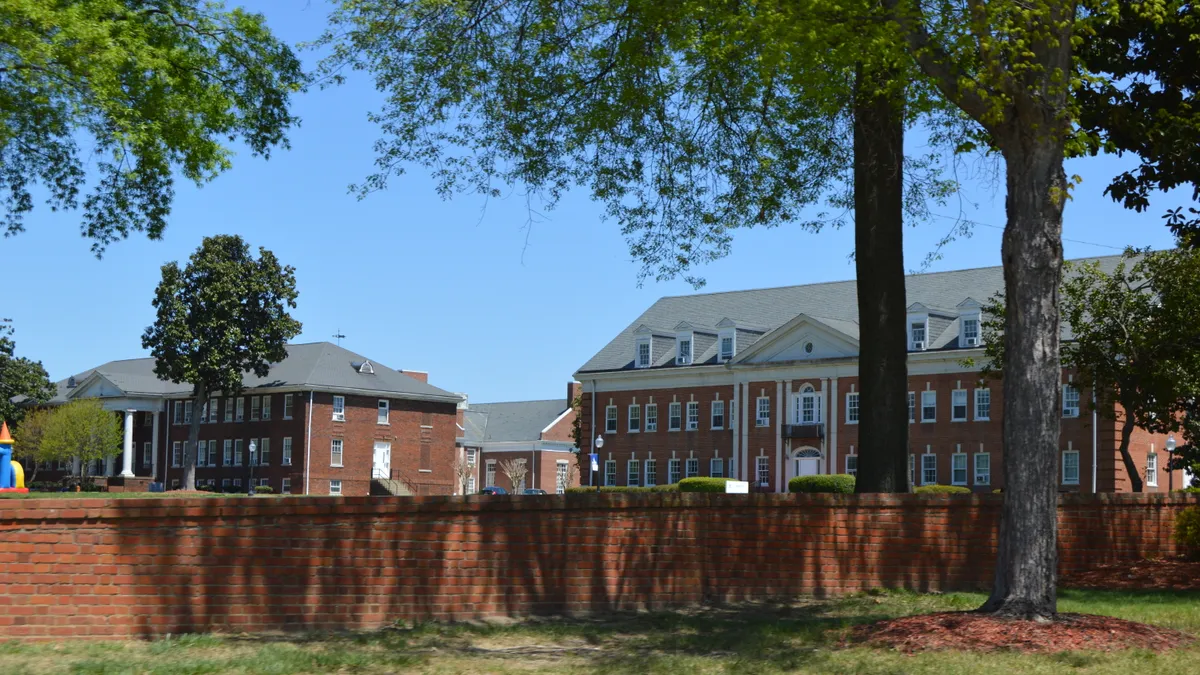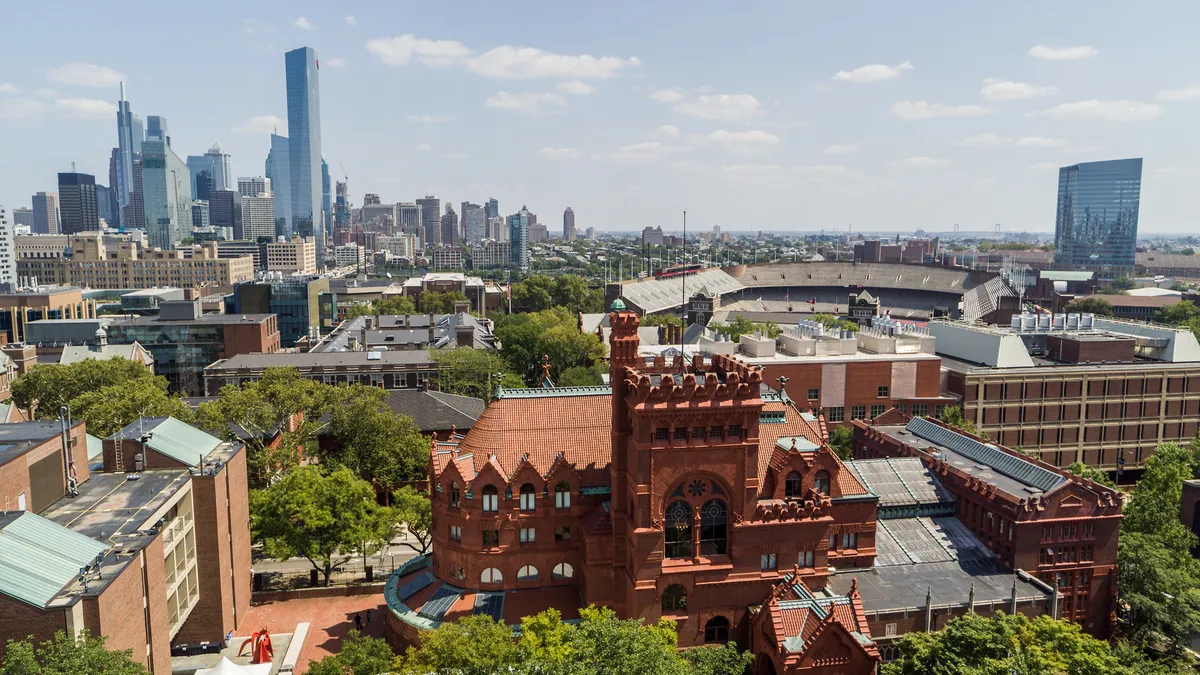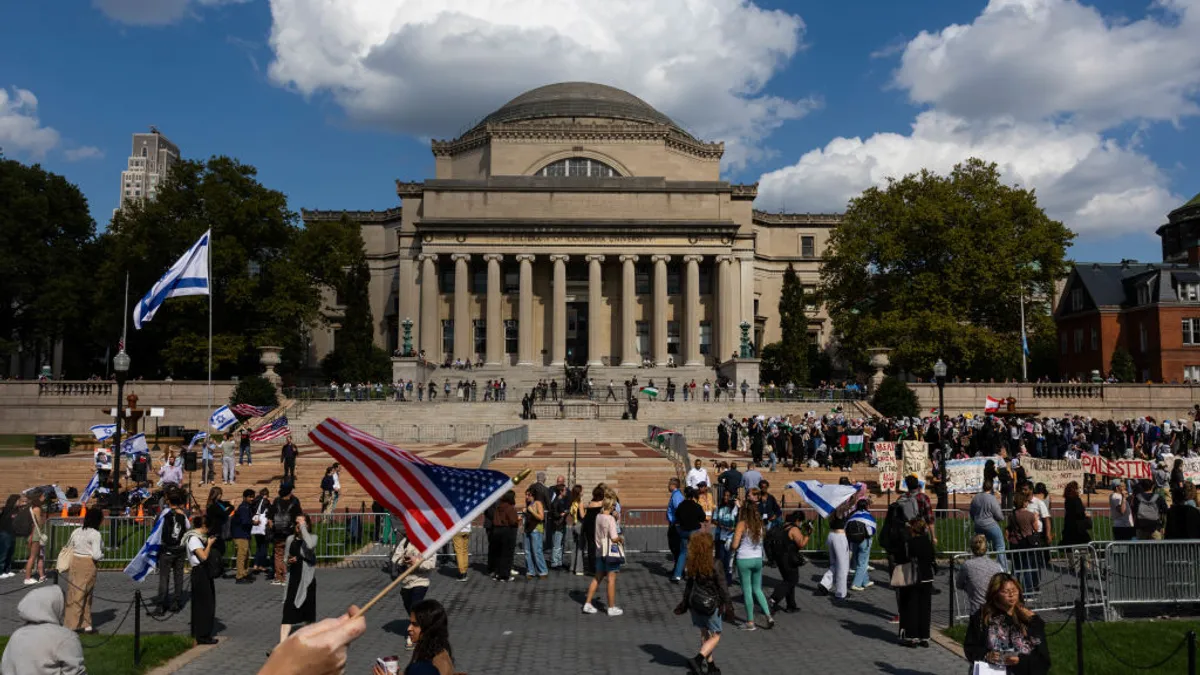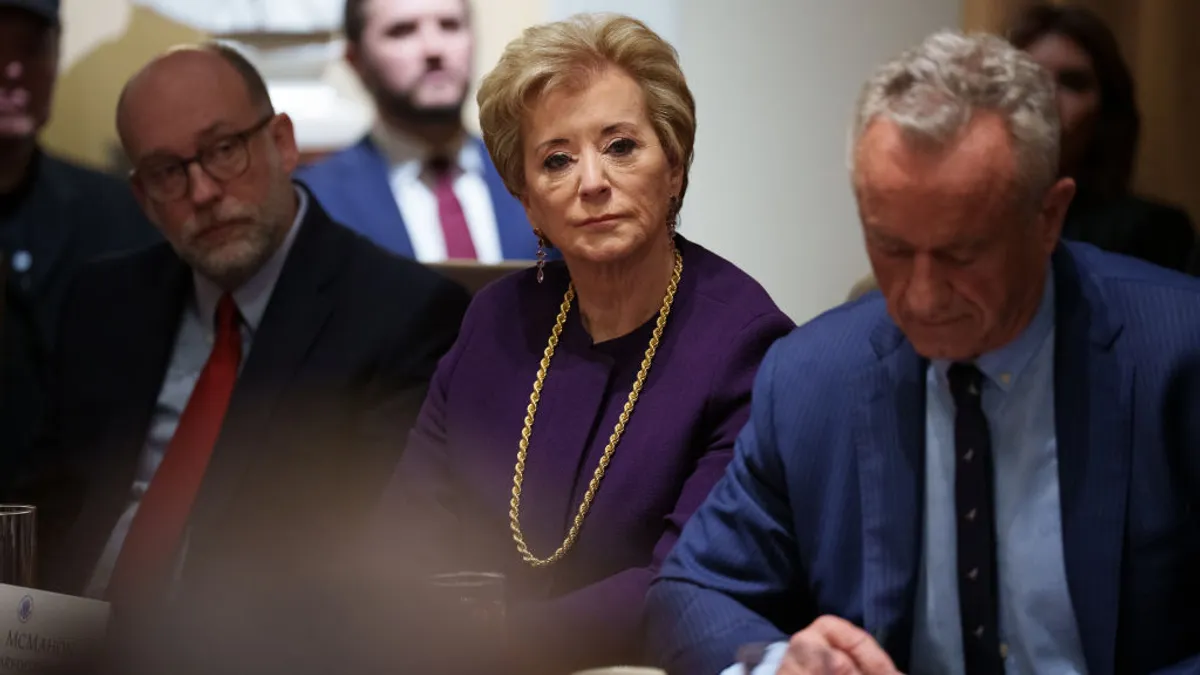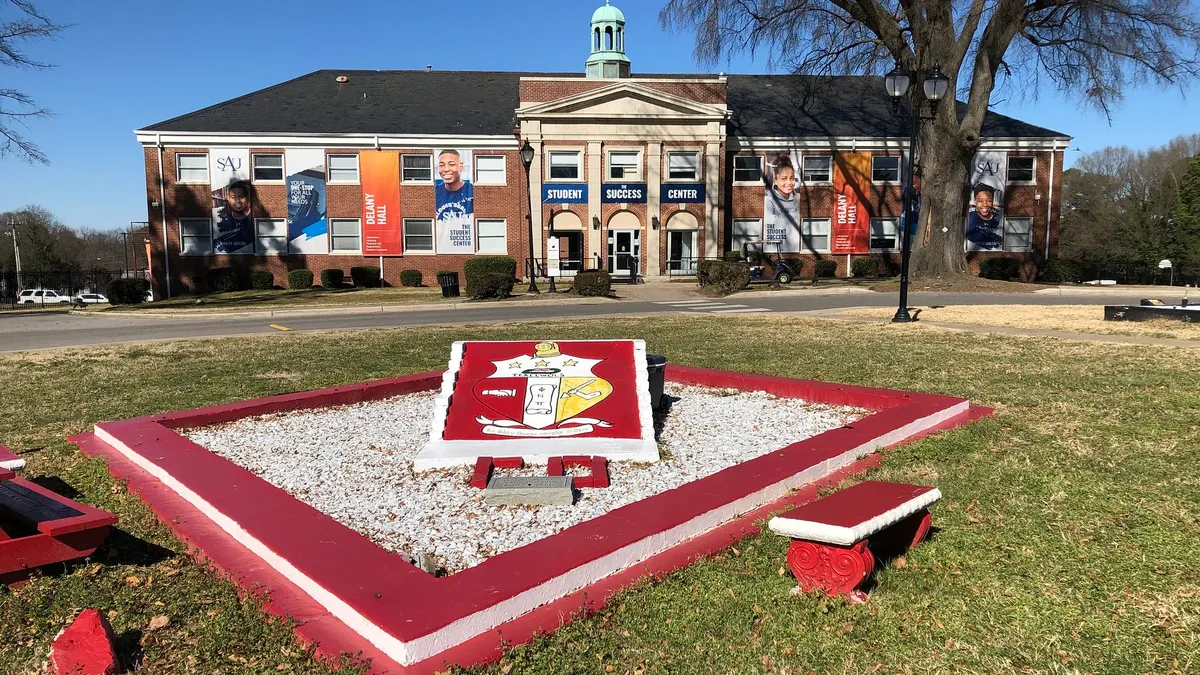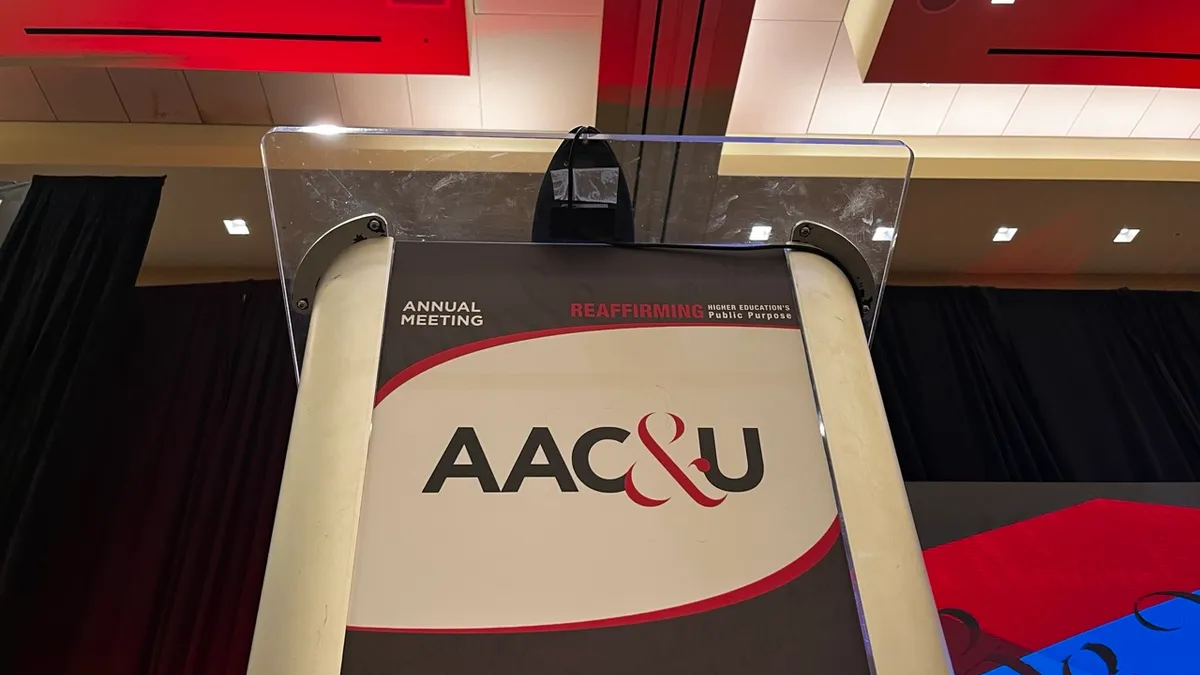Bennett College has been through twists and turns over the last two years, even more so than other institutions.
At the end of 2018, the Southern Association of Colleges and Schools Commission on Colleges moved to pull Bennett's accreditation because of concerns about its financial condition. Losing accreditation would be devastating for most colleges, because it means students can't access federal financial aid.
Leaders at Bennett, a historically Black women's college in Greensboro, North Carolina, responded by mounting an effort to raise money and keep the private nonprofit institution open. They also sued SACSCOC to remain accredited before eventually securing candidate status with another accreditor, the Transnational Association of Christian Colleges and Schools.
Bennett, which enrolled about 230 undergraduates last fall, has since gone on to approve a new strategic direction that aspires to bolster its finances and create a new model of small college "that will have macro impact."
Although Bennett hired a new president in 2019, the same board chair helmed it through its fight to stay open: Gladys Robinson, a state senator in North Carolina. Then in October, the college announced that Kwanza Jones, a musical artist, entrepreneur and investor, had been elected its new board chair. Jones has been on the college's board since the 2019-20 academic year.
Higher Ed Dive spoke with Jones about what it means to lead a college's board at this moment in time and her goals for Bennett.
Editor's note: This interview has been edited for brevity and clarity.
HIGHER ED DIVE: As a women's HBCU whose finances have been under scrutiny, Bennett sits at the crossroads of many trends affecting different higher ed institutions. How do you think about that?
KWANZA JONES: I look at Bennett and this interesting crossroads of where we are: funding for HBCUs and the education of women in general.
My serving as chair of the board is not from the lens of Bennett being an historically Black college that's in Greensboro and only for Greensboro. It is looking at and seeing how Bennett has always been a leader in social justice movements, not only locally, regionally, nationally, but also globally.
This is a legacy and a history and a foundation that's been laid.
Look at the withdrawal of the U.S. from Afghanistan, and look at what that has meant for women.
There is absolutely no place in this world in which a woman not being educated makes sense. It does not help and benefit our world for women not to be educated or for women to have some advances and then those advances be removed.
What is your vision for where Bennett is going?
I always think about goals as being directional.
Mass personalization and even mass customization — that's part of what the goals are, knowing we are going to have to constantly be open to and for the future.
In the short term, a one-year lens, we are really embracing that yes, Bennett is a microcollege and there is a microcollege model. I think some people think, "Oh, how can a microcollege survive? If it's so small, then enrollment alone is not going to be enough to sustain it." And to that I say you are absolutely correct, but by understanding and thinking small, the goal is that you can really understand that personalization is necessary.
One of the priorities is that Bennett is a microcollege that is also thinking about the entire student experience.
What else?
A year out we will be able to have a component where there are more continuing programs and education beyond offering just a four-year degree program.
There is this additional model with people who don't need or want that as their pathway. Instead, they need to pick up what they need right now in this moment so it can help get them to the next place where they want to go. That is, "I need to learn this one particular skill."
Let's say maybe it is project management and you're trying to learn how to be a better project manager so you can go into this job you're working in and bring that skill to bear. And then it's going to help with your economic mobility.
It is, in many ways, the unbundling of education from being just four-year.
You're talking about changes that can be hard for institutions to make. How do you think about managing change?
One thing I always like to say is, "The only thing that change is, is everything." Everything always changes. That's the nature of life. That's the nature of the world we live in.
Let's look at the institution of education and see how we can do better and not respond solely to things because it's how it's been done and it's easier to continue this way. Instead, if we think about it as an opportunity, especially because of 2020 and this mass disruption that occurred, let's continue to ride that wave. It doesn't mean it's easy by any stretch of the imagination, but we already know what it means to be disrupted.
You didn't go to Bennett. From the perspective of leading the board, is that an advantage or a disadvantage?
Oh, I think it's both. The advantages are you can look at things very differently.
I would say I am not from Bennett but I am of Bennett. Not being from Bennett because I did not graduate from this college, but being of Bennett because my mother did, my aunts did, I've had cousins who have done that.
The learning that they were able to gain and attain through Bennett, I have been able to benefit from. I've been a beneficiary even though I was not directly in the classes.
When I bring that outsider's — I'll call it an insider-outsider — connection to Bennett, it means I have the heart for Bennett that anyone who would have attended would or should have. But it also means I am able to bring a lot of access.
One of the things I look at is, having gone to Princeton, and even now, my husband is on the board at Stanford, so I think now is the time and the place for doing something which has been done in many ways before, which is partnerships between HBCUs and larger predominantly White institutions.
If we look at 2020 and all of the things that have been happening, it's fundamentally because there is a lack of connection and a lack of understanding. It's fundamentally because there is an otherness. And how do you have one-ness? By getting people to know each other.
You could do a semester, a spring break, one week, whatever period of time you want, in an institution other than your home college. Those are ways where being on the board and not having come solely from Bennett gives me the opportunity to bring to Bennett access to a lot of different networks.
Did we miss anything?
One of the things I would say for Bennett but also for all schools and colleges: We've got to think now, in terms of education, where is it we want to be 20 years from now? And having a model so that in 20 years, we know we are comfortable with change, constantly.
How are we looking at data? How are we having engagement? How are we measuring and improving, knowing that, oftentimes, by the time we even do some of the measurement, that information is already old?
We have to constantly be so nimble and be open to change without losing fundamentally who we are as a college or as an educational institution or as a program.



